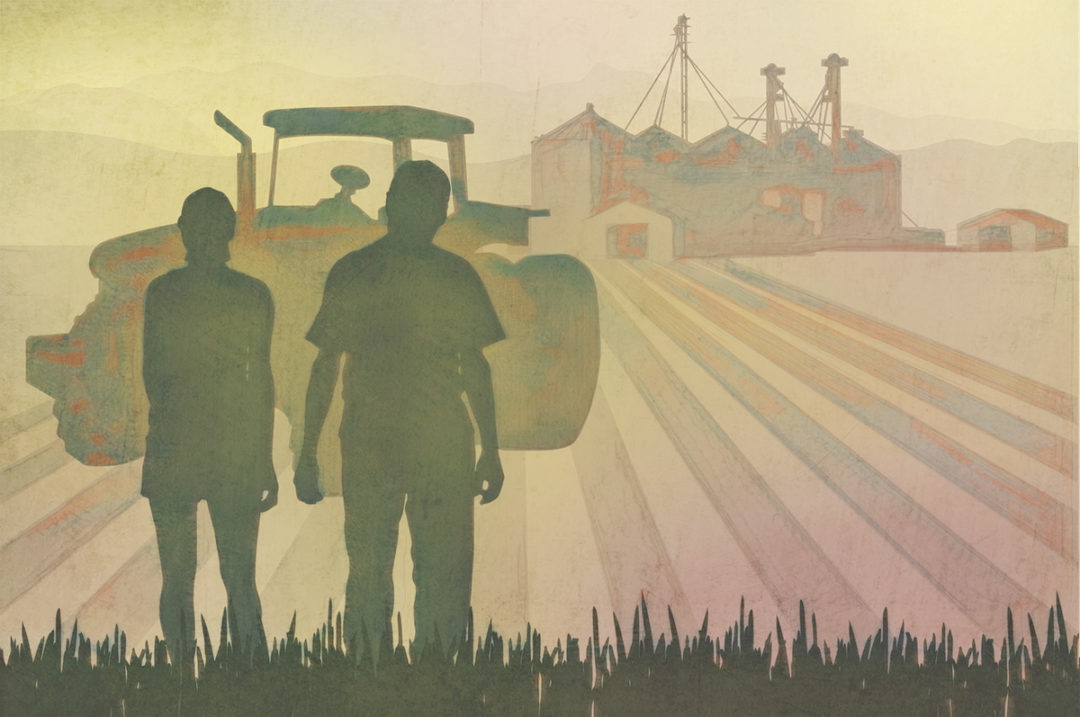

Last year, the U.S. Department of Labor (DOL) reported a 69% increase in the illegal employment of children throughout the U.S. This means there was a 69% increase in the number of employers the DOL found had been employing children in violation of child labor laws throughout the country. The violations that dominated headlines involved children operating machinery or conducting jobs that are categorized as “hazardous occupations” under the federal law known as the Fair Labor Standards Act of 1938 (FLSA). For instance, in 2023, Packers Sanitation Services (Packers) was charged with a $1.5 million fine because Packers were employing “at least 102 children – from 13 to 17 years old – in hazardous occupations” and had those children “working overnight shifts at meat processing facilities in eight states,” directly in violation of the child labor laws within the FLSA.

The FLSA establishes “minimum wage, overtime pay, recordkeeping and child labor standards,” for workers who are full time and part time in government or private sectors. The FLSA standards outlined above are applicable to “all employees of certain enterprises having workers engaged in interstate commerce, producing goods for interstate commerce, or handling, selling or otherwise working on goods or materials that have been moved in or produced for [interstate commerce].” Therefore, any employer involved in a business/enterprise that is producing, selling and transporting goods between different states will be subject to the FLSA requirements.
The FLSA also applies to “covered enterprises,” that have an “annual gross volume of sales made, or business done that is not less than $500,000 …” Importantly, even if a business is not considered a “covered enterprise,” it may still be subject to the FLSA if the business is engaged in interstate commerce through producing, selling and transporting goods to different states. States can enact their own laws regarding child labor, but they cannot lessen requirements below what federal law and regulation minimally require for businesses that are subject to the FLSA.
Child labor laws like those under the FLSA and corresponding federal regulations were enacted to stop the exploitation of children in the workforce. The FLSA and its corresponding regulations provide the baseline for what jobs children can and cannot work depending on their age. Therefore, if Idaho were to enact a law that allowed 12-year-olds to work in an occupation categorized as “hazardous” pursuant to federal law, it would be creating a standard that was below what federal law minimally requires. In that instance, an Idaho employer involved in producing/exchanging goods in interstate commerce, or above the monetary threshold to make it a covered enterprise under the FLSA, would be required to comply with the federal standards and not Idaho’s law.
The youngest age a child can work in non-agriculture work in the U.S. is 14 years old. However, there are exceptions for agriculture occupations. For instance, a child of any age can work on a farm that is owned/operated by their parent (or guardian). Additionally, if a child under the age of 12 has consent from their parent, he or she can work a job categorized as non-hazardous on a small farm (so long as the small farm meets certain requirements related to minimum wage standards).
AdvertisementImportantly, children under the age of 16 cannot work in an agriculture occupation categorized as hazardous by federal law or in an agriculture occupation during school hours. Hazardous occupations in agriculture include operating a tractor over a certain horsepower threshold, operating certain machinery like “cotton picker, grain combine, hay mower,” working in a “yard, pen, or stall occupied by a bull, boar, or stud horse maintained for breeding purposes” and many other agriculture occupations common on a farm or ranch.
Even if a business is not involved in the direct unlawful employment of children, it can still be subject to FLSA penalties. This happens when a business is in possession of goods (that came from interstate commerce) that were produced (by another business) in violation of child labor laws. Specifically, no goods are allowed to enter interstate commerce if 30 days prior to their shipment into commerce, the goods were produced by or located at a business violating child labor laws. This rule is known as the “hot goods” rule. The hot goods rule will not apply to a business that bought goods “in good faith and in reliance on written assurances,” from the business providing the goods that said business was not violating the FLSA (e.g., child labor laws). Ultimately, businesses cannot evade the penalties and requirements of the FLSA by claiming they were not directly involved in the unlawful employment of children who produced goods that came into their possession (unless the good faith exception applies).
Penalties imposed for violating child labor laws include: monetary fines; court orders stopping the transfer of goods produced in violation of the FLSA (i.e., “hot good injunction”) and/or court orders compelling compliance with the FLSA. A hot goods injunction allows the DOL to stop goods from shipping/being delivered through interstate commerce that were produced through “oppressive child labor.” An injunction to compel compliance allows the DOL to seek an order from a court to compel an employer to take certain actions to comply with child labor laws. This may involve firing employed minors who should not be working in a certain occupation. If an employer fails to comply with the injunction, he or she could face sanctions for non-compliance.
While recent headlines regarding child labor violations have involved industries and occupations not categorized as agriculture, that does not mean agriculture operations and jobs are not being monitored to ensure compliance with child labor laws. While state law does have a part to play in regulating child labor standards, state laws cannot allow less strict standards than what is required by federal law for businesses subject to the FLSA. Idaho child labor laws can be found in Idaho Code Section 44, Chapter 13.
During the 2024 legislative session, Idaho Senate Bill No. 1300 was introduced to update Idaho’s child labor law. The bill will remove the requirements on the restrictions for employing children under 14, the educational requirements for children under 16 and the working hour requirements for children under 16. However, just because Senate Bill No. 1300 would remove these requirements from Idaho’s code if it is enacted to law does not mean Idaho employers no longer have to follow the requirements outlined in the FLSA. If the employer’s business is involved in interstate commerce (which includes a wide range of activities) and/or is considered a covered enterprise under the FLSA, the employer must continue to follow federal law and regulations concerning child labor. For more questions regarding child labor law compliance, please feel free to contact me at (208) 629-7447 or by email.
References omitted but are available upon request by sending an email to the editor.